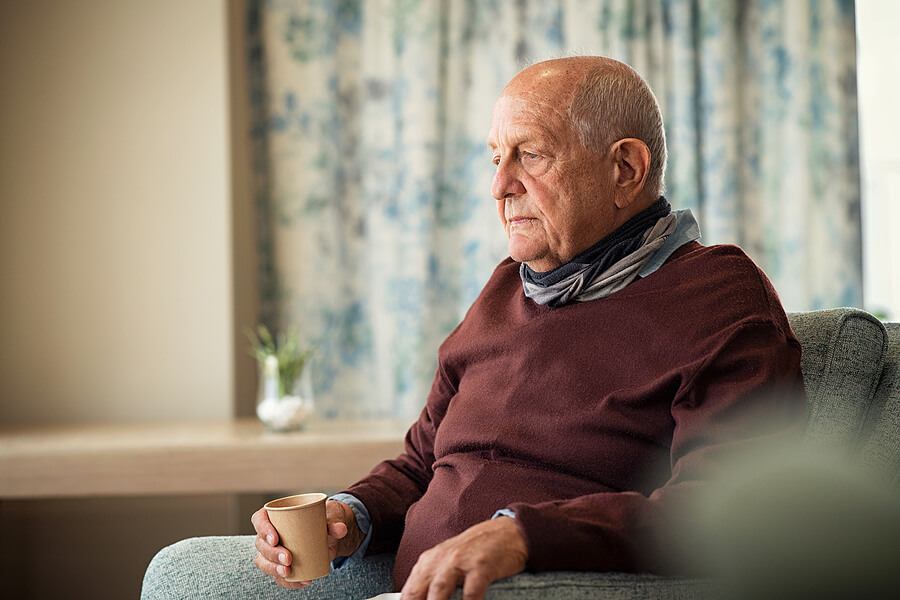During the COVID-19 pandemic, many family members could not visit their loved ones who resided in nursing homes, memory care facilities, and assisted living communities as often as they wanted to. In many cases, these facilities did not allow visitors and faced severe staffing shortages that may have put your loved one at risk.

Types of Nursing Home Malpractice
Here are some of the most common types of nursing home malpractice:
Neglect
Neglect is one of the most common types of nursing home malpractice that occurs. Neglect can be as simple as not supplying enough water to a resident. The result could be dehydration and a very high fever, which could lead to death. Neglect can also take the form of neglecting to call 911 when a resident falls and is injured.
Medication Errors
One common type of nursing home malpractice is medication errors. This includes wrong dosages, incorrect prescriptions, and missed doses. In other cases, medications with known adverse reactions are accidentally administered.
Physical Abuse
Physical abuse can come in many forms. Some examples are: hitting, kicking, throwing objects at a resident, or forcing a resident to take part in physical labor. This can happen during staffing shortages when caregivers are frustrated.
Sexual Abuse
Sexual abuse can happen between staff and residents, or it can happen between two residents. Sexual abuse not only affects the victim physically, but it also affects them psychologically and emotionally.
Emotional Abuse
Emotional abuse is one of the most common forms of nursing home malpractice. An example would be a nurse or caregiver yelling excessively at a resident. Emotional abuse can lead to mental disorders, like depression or anxiety.
Financial Abuse
One of the most common types of nursing home malpractice is financial abuse. When this type of abuse occurs, the caregiver takes money or other assets from a resident without their knowledge or consent. This can happen in a number of ways. For example, a caregiver might forge a signature on a check and cash it. They might also steal credit cards or bank statements from residents to purchase items for themselves.
COVID-19 Pandemic-Specific Concerns
In addition to the normal challenges, the nursing home industry faces the sars-cov-2 pandemic presented specific challenges to seniors who are more at risk of developing severe illnesses and dying. To keep residents safe and to prevent outbreaks, steps must be taken and protocols created. When senior care facilities fail to take these actions, they are negligent in protecting residents.
Some nursing homes faced specific pandemic-specific concerns that impacted their care quality for seniors, including:
Staff Shortages
During the pandemic, people were asked to stay home and socially distant. The caregivers at nursing homes had the same issues with childcare, school closures, and fear of infection. As a result, many nursing homes faced severe staff shortages in addition to what the industry normally suffers from. These shortages could lead to neglect for nursing home residents.
Inadequate Infection Control Measures
Since elderly people are at a higher risk of death from COVID-19, nursing homes needed to take a strong stance on infection control measures to keep their residents safe. This includes having protective protocols within the facility regarding staff actions, PPE, and visitors. Even a few weeks of delay in implementing these protocols can have an impact on the likelihood and the severity of an outbreak of the sars-cov-2 virus in a nursing home.
Failure to Sanitize and Separate
Sanitization and social distancing are equally important in preventing COVID-19 illness. If staffing shortages or lack of protocols led to less sanitary conditions, this is a type of neglect. If a loved one died after contracting COVID-19 while living in a nursing home, it is possible that better sanitization and social distancing procedures could have prevented the spread.
Contact a Savannah Nursing Home Malpractice Lawyer Today
It is important to select an experienced and reliable Savannah nursing home malpractice lawyer, especially if your loved one died of COVID-19 while living in a nursing home. An experienced attorney will have the resources and experience to prove that a nursing home is liable for the injuries sustained by residents. They should be able to prove that the nursing home has been negligent in handling the resident’s care.
If your loved one is the victim of nursing home malpractice or negligence, they could be entitled to receive compensation. Phillips Carson & Phillips can help you file a nursing home malpractice claim on behalf of your loved one. Contact us to schedule a consultation by calling (912) 232-0081 or using our online contact form.
